[SSR Conference 2024] Youth Mental Health Landscape: Upstream Prevention and Downstream Intervention

Thank you for joining us at the conference. Recording and presentation slides will not be circulated after the event but do look out for upcoming publications related to this conference. Thank you!
Download programme booklet here
Contact SSR for more details
Conference Theme
The theme of SSR Conference 2024 is youth and mental health. The conference aims to discuss antecedents, processes, and consequences of mental health conditions among youth, as well as explore both upstream preventions and downstream interventions to bolster mental health functioning among youths.
Guest-of-Honour: Dr Janil Puthucheary, Senior Minister of State (MOH)
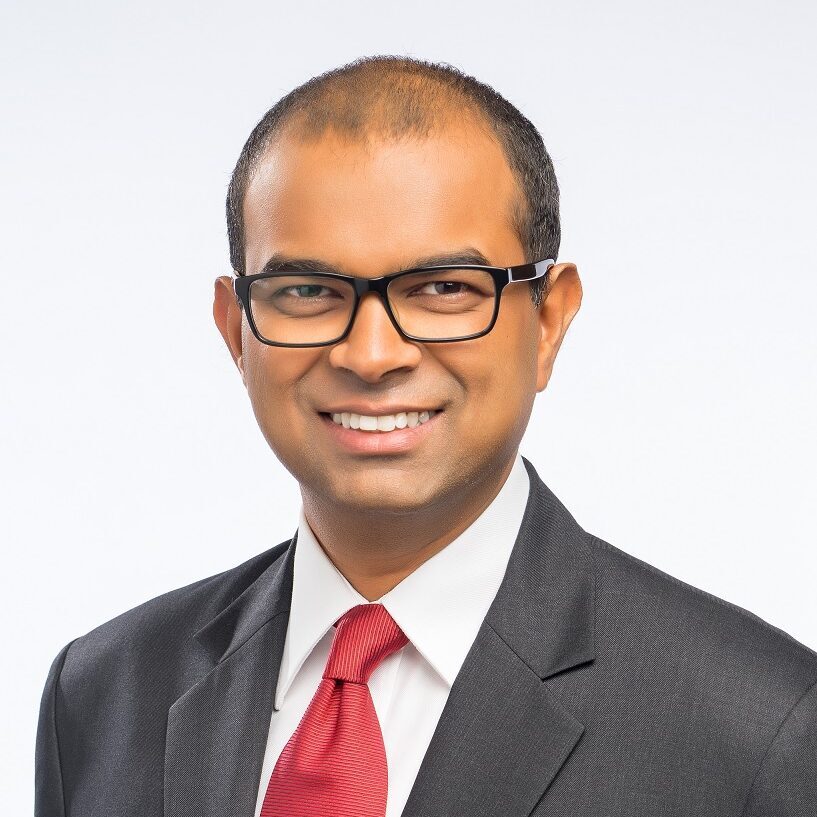
Dr Janil Puthucheary, 50, was elected as a Member of Parliament in 2011. He is currently Senior Minister of State, at the Ministry of Communications and Information, and the Ministry of Health.
He is Minister-in-Charge of GovTech, the government technology agency, and a member of the Smart Nation Inter-Ministerial Committee. He chairs the Inter-Agency Task Force on Mental Health and Well-being and is a member of the Child and Maternal Health and Well-being Taskforce. He is also a member of the Ministerial Committee on Child Health and Development.
He is a member of the National Integration Council and an Advisor to Cyber Youth Singapore. As part of the People’s Association, he is a Board Member, Advisor to the PA Youth Movement, and Advisor to Narpani Peravai.
Introduction Speaker: Dr S Vasoo, Emeritus Professor (NUS)
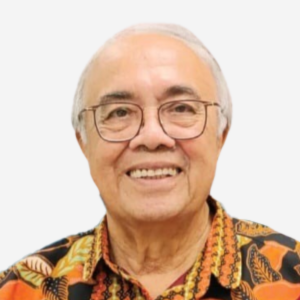
S Vasoo is Emeritus Professor at the Department of Social Work, National University of Singapore. He obtained his Doctorate and Master of Social Work from the University of Hong Kong and holds a Diploma in Social Studies with distinction from the University of Singapore. He authored a number of monographs on social issues and has published various such articles both internationally and locally.
He was awarded the Honorary Life Member of the Singapore Association of Social Workers for his outstanding contributions to social work in Singapore. He was the Member of Parliament from 1984 to 2001 and he also served as Chairman of the Government Parliamentary Committee for Community Development. He is Advisor to a number of Voluntary Welfare Organisations in Singapore and is still actively involved in community development work and activities.
He was awarded the Distinguished Alumni of the Faculty of Arts and Social Sciences, National University of Singapore as well as the Faculty of Social Sciences, University of Hong Kong. He was recently recognised with a Life Volunteer Award of Allkin (formerly Ang Mo Kio Family Service Centre).
Panel 1 — Risk and Protective Factors of Youth Mental Health Outcomes
What Ails Our Youth – A Psychosocial Perspective of Youth Mental Health
While most youths are healthy, mentally and physically, about one in five youth in the general population met the criteria for a lifetime mental disorder in Singapore. The Singapore Mental Health Study 2013 found that about 9% of young people (18-34 years) had experienced major depressive disorder in their lifetime, while 6.7% met the criteria for obsessive-compulsive disorder. Mental disorders at any age can impair the quality of life and the ability to function. However, for young people, these disorders can also negatively affect their academic outcomes, ability to get a job, and form close relationships. While early diagnosis and treatment are crucial to ensure that youth recover early, the identification of risk factors can mitigate the risk of developing mental disorders. The talk will focus on the various protective and risk factors that contribute to youth mental health with a focus on data from Singapore, and highlight efforts that can be taken at the individual and community levels to promote positive mental health.

Assistant Chairman Medical Board
(Research), IMH Consultant,
Ministry of Health, Singapore;
Associate Professor, NUS Saw Swee Hock School of Public Health;
Associate Professor, NTU Lee Kong Chian School of Medicine
A/Prof Mythily graduated from the Lady Hardinge Medical College, India. She received her PhD in Gambling Studies from Monash University and is currently Assistant Chairman Medical Board (Research) and Lead Investigator of the Programme of Mental Health Policy Studies at the Institute of Mental Health (IMH). She also has a concurrent teaching appointment at the NTU Lee Kong Chian School of Medicine and the NUS Saw Swee Hock School of Public Health.
She has worked in the field of mental health for more than 15 years and her main academic and research interests include psychiatric epidemiology, psychosis and addictions.
Exploring the Intersections of Trauma, Adversity, and Youth Mental Health and Promising Protective Buffers
Youth mental health is an emerging issue that confronts young people of today’s society. Particularly, traumatic and adverse experiences have been associated with multiple mental health problems, including anxiety, depression, PTSD, and suicidality. Empirical evidence revealed that youths who have been bullied in any forms of school bullying and cyberbullying are more likely to report a higher level of internalising symptoms, such as depression, anxiety, and suicidal ideation (Lee et al., 2021, 2023). Similarly, childhood abuse and neglect are also potential risk factors for mental health problems. To buffer against the associations between trauma, adversity, and youth mental health problems, positive parent and peer (PPP) factors may play critical roles. For instance, healthy parent-child relationships and parental warmth buffer against mental health problems. In addition, peer support and attachment reduce the risk of youth mental health problems. Despite mounting strong evidence about the impacts of childhood trauma and adversity on youth mental health worldwide, it is still a fairly under-studied phenomenon in Singapore. This presentation will discuss the intersections of trauma, adversity, and youth mental health in Singapore and the key protective factors that buffer against the associations and enhance youth mental health and well-being.
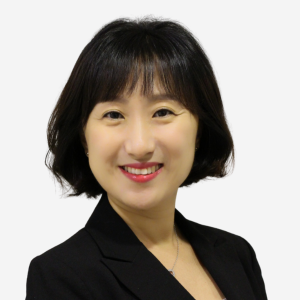
Assistant Professor,
Department of Social Work, NUS
Dr. Jungup Lee is an Assistant Professor in the Department of Social Work at the National University of Singapore. Her research seeks to refine the understanding of how adverse childhood events relate to subsequent behavioural and mental health outcomes for children and adolescents. Specifically, Dr. Lee’s research focuses on identifying multi-level risk and protective factors (e.g., family, peer, school, and community levels) that shape various patterns of externalizing and internalizing behaviours to facilitate the development of more effective intervention strategies for social workers providing services to children, adolescents, and young adults. Her research interests include cyberbullying, school violence and safety, child maltreatment, online harassment, technology-facilitated sexual misconduct, juvenile justice, and youth mental health and digital well-being.
Identifying Factors that Promote Long-term Recovery in Youth Mental Health
Mental health practitioners want to know how to promote long-term recovery in youths with mental health problems. However, studies rarely investigate long-term effects of risk and protective factors on emotional (EPs) and behavioural problems (BPs). Here, we analysed a longitudinal sample of 444 youths (ages between 13 to 19) from Singapore’s general population over 2 years and assessed whether changes over the first year for 2 risk factors (EPs, BPs) and 12 protective factors, predict changes in EPs and BPs over the second year. We found that early improvements in EPs/BPs are not indicative of later improvements in EPs/BPs. Instead, early improvements in EPs predict later improvements in BPs and vice versa, moderated by sex and baseline BPs. Collectively, these findings imply that directly targeting salient symptoms may not confer long-term benefits. Depending on the youth’s sex and BPs, it can be productive to administer more holistic treatments. Among protective factors, only parent attachment and school assets (if they started with low assets) had long-term effects on BPs, highlighting the importance of family and school environments. Many of the other protective factors still covaried with EPs and BPs within the same year, signaling their usefulness for promoting quick recovery.

Research Specialist,
Translational Social
Research Division,
National Council of Social Service (NCSS)
Dennis Teo is a Research Specialist at the Translational Social Research Division, National Council of Social Service (NCSS). His current work with the Enhancing Positive outcomes in Youth and the Community (EPYC) team focusses on (a) understanding the changes that young offenders undergo upon entering the justice system and (b) estimating the effectiveness of intervention programmes aimed to rehabilitate these youths.
Moderator: Dr. Rayner Tan

Assistant Professor, NUS Saw Swee Hock School of Public Health and
National University Health System;
Visiting Research Fellow,
Infectious Diseases Research and
Training Office, National Centre for
Infectious Diseases, Singapore
Dr Rayner Kay Jin Tan is an Assistant Professor at the NUS Saw Swee Hock School of Public Health, and a Visiting Research Fellow at the National Centre for Infectious Diseases. His research focuses on the social determinants of health, implementation science, community engagement, and health equity of vulnerable communities. He is a lead at SG Mental Health Matters and a workgroup member of Project Hayat to develop a National Suicide Prevention Strategy in Singapore, as well as chairperson at a trauma and substance use recovery centre and charity, The Greenhouse Community Services Limited.
Panel 2 — Upstream Prevention:
Digital Initiatives and Peer Support for Youth Mental Health
Digital-First Approach to Empower Youth Mental Health: Case Study of mindline.sg
mindline.sg is Singapore’s flagship digital self-help mental health programme, helmed by the Ministry of Health Office for Healthcare Transformation. It was first launched in June 2020 to address heightened stress levels brought about by the pandemic situation. It is a transformative, first of its kind platform in Asia, equipped with an AI therapy chatbot, CBT exercises and a comprehensive resource directory. Over the past 3 years, it has reached out to over a million users, about 20% of Singapore’s population.
In 2022, the mindline team embarked on a six-month journey to understand the mental health needs and aspirations of our young adults, and co-create digital solutions with them. An online peer support forum, let’s talk, was developed. The community platform aims to foster a safe, positive, and reassuring space for young people to get validated mental health information, share ideas and stories, and connect with peers and trusted professionals anonymously.
Youth mindline and let’s talk are paving the way for digital-first solutions to unite the presently fragmented efforts of the youth mental health sector. Our goal is to create space for young people to step in and be part of the change process, ultimately moulding a generation of global changemakers.
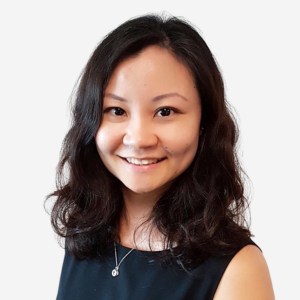
Deputy Director,
mindline.sg Programme,
MOH Office for
Healthcare Transformation
Janice Weng is a Deputy Director at the Ministry of Health Office for Healthcare Transformation (MOHT). She leads the digital mental health programme, focusing on designing and co-creating innovative digital solutions to improve the health and wellbeing of citizens. An award-winning initiative developed during the pandemic period is mindline.sg, an anonymous self-care and self-help therapy platform.
Prior to joining MOHT, Janice held leadership positions in consulting firms and led teams to deliver public policy and digital transformation projects for governments. She also has extensive experience in the human and social services sector, specialising in outcome measurement and nonprofit capacity building. Janice has a Master in Public Policy from the Lee Kuan Yew School of Public Policy.
Digital Peer Support Training Intervention for Singapore Adolescent Mental Health
This randomized trial evaluated a digital peer support skills development intervention for adolescent mental health with 450 adolescents aged 13 to 16 from three high schools in Singapore. Adolescents were randomly assigned to the intervention or waitlist control group. The intervention entailed training digital peer support skills that promote adolescent well-being. The primary outcome was training effectiveness of digital peer support skills—the degree to which participants’ support responses indicated four psychological skills of well-being—mattering, selfhood, compassion, and mindfulness that were assessed at pre-intervention, post-intervention, and 4- and 8-weeks post-intervention (carry-over effects).
Using a linear mixed effects model, we compared the digital peer support skills of the intervention group with the scores of the waitlist control group. Significant between-group improvements were observed at post-intervention across mattering, selfhood, and compassion, but not for mindfulness. Increases in mattering, selfhood, and compassion were sustained at follow-up assessments in the intervention condition, whereas mindfulness demonstrated delayed effect of training.

Research Fellow,
Social Service Research Centre,
Faculty of Arts and
Social Sciences, NUS
Dr Yeo Geck Hong is a Research Fellow at the Social Service Research Centre (SSR), NUS. She received her Ph.D. in Educational Psychology from the University of Wisconsin-Madison. Her research program centers on the role of social contexts in adolescents’ development of psychological well-being. Informed by a contextually-rooted developmental model, her research emphasizes the role of contextual factors and the mechanism of change in psychological adjustment.
Digital Mental Health in Practice – What Have We Learned?
Digital mental health has gained popularity in recent years given its potential to provide services to people having difficulty accessing services or preferences other than in-person interactions, as well as its growing effectiveness. SHINE likewise experimented with it in the last 3 years to make our mental health services more adolescent friendly. These initiatives include i) using social media to outreach to youths who may need mental health support, and ii) deploying a mental health e-buddy app and various tech tools to provide resources to improve mental health literacy, resources for self-help, encourage help seeking, or complement ongoing interventions. Through these efforts, we have gained some insights into considerations and practices that will affect the use of digital approaches from the service users, practitioners and peer helpers’ service delivery perspectives. We hope these learnings can guide us to incorporate digital mental health in a more effective, ethical and youth-centric manner in our practice moving ahead.

Assistant Director,
Youth Mental Health and
Volunteerism Capability,
SHINE Children and Youth Services
Mr. Eric Sng is currently overseeing Youth Mental Health & Volunteerism Capabilities at SHINE Children and Youth Services. A social worker by training, he has served in social services coming 15 years and have a range of experiences in youth development, diversionary, outreach and mental health work. He is passionate about pioneering new programmes or approaches to close service gaps and meet needs more effectively. He also enjoys developing the next generation of social service practitioners and is a social work seminar tutor, field educator and lecturer at the National University of Singapore.
Moderator: Dr. Serenella Tolomeo

Senior Scientist at the Social & Cognitive Computing Department,
Institute of High Performance Computing, A*STAR
Dr Serenella Tolomeo’s research focuses on determining psychological and neural mechanisms underlying mental health conditions. Her research goals integrate psychological medicine, cognitive neuroscience, neuroimaging and decision-making neuroscience measures. Her research career began with a BSc degree in Experimental Psychology from the University of Milano-Bicocca (Italy) and subsequently obtained a MSc in Clinical Psychology, Neuropsychology and Developmental Psychology at the University of Milano-Bicocca (Italy). She obtained her PhD in Medicine from the University of Dundee (UK) in 2020. She spent two years as a postdoctoral fellow at NUS conducting cognitive neuroscience and neuroimaging studies in mental health. She is currently a Senior Scientist at IHPC, A*STAR.
Panel 3 — Downstream Intervention:
Innovative Approaches in Addressing Youth Mental Health
Broken Crayons Still Colour: Development and Evaluation of a Psycho-Education Workshop Series
Very often, the voice of young people living with mental health conditions is overlooked. Co-production is a relatively new approach to mental health services that creates opportunities for patients, caregivers and mental health professionals to work collaboratively in the design and delivery of mental health services. Building upon the principles of co-production, School of Ability & Recovery (SOAR) aimed to tackle the issue of stigma against mental illness in the community by having different stakeholders develop and deliver psycho-education workshops pertaining to recovery from mental health issues. In this presentation, the development and evaluation of a co-produced workshop series, Broken Crayons Still Colour, will be discussed. The audience can expect to learn how to build a psychologically safe space for youths and their family members to have heartfelt conversations about recovery from a first episode psychosis. An outcome evaluation of Broken Crayons Still Colour, with its design and results, will be presented. By doing so, SOAR hopes that young people in recovery from psychosis can regain their agency and have their voice amplified through co-production.
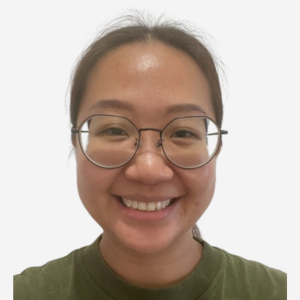
Co-founder,
School of Ability & Recovery (SOAR)
After earning her PhD from the University of Basel, Florence returned to Singapore and worked at the Institute of Mental Health (IMH) for 6 years. With her training from TCA College, she is currently practicing as a counsellor at a family service centre. In 2018, Florence co-founded a local ground up initiative, SOAR, to tackle the issue of stigma against people with mental health issues. Together with collaborators like Youth Corps, IMH and People’s Association, SOAR has co-produced more than 5 workshop series pertaining to mental health and reached more than 400 unique workshop participants. Florence is a SG Strong Fellow.
The Efficacy of Arts-Based Therapy Interventions for Children in Singapore
Between January 2021 and July 2023, the Red Pencil Singapore (RPS) provided 43 art therapy programmes through collaborations with 31 partner organisations (POs) and schools, for a total of 197 individuals. Data collected in the form of needs assessment indicate that the context of therapy required to support children is strongly impacted by family systems; single parenting, divorce process, loss of a family member, incarceration, etc. Data collected by questionnaires, interviews with six art therapists, and supervision reports suggest the significant role that arts-based therapies offer in supporting children and youth in development and mental health.
Based on the environmental framework to child development, this presentation suggests that the complex support required for children and families may be provided in multiple spaces and settings, by a multidisciplinary team that includes professional arts-based therapists. This holistic, strength-based approach recognises non-verbal communication and sensory aspects of development, complementing other forms of educational, counselling, and support programmes. This study recommends developing and implementing arts-based programmes in schools, community spaces, and homes, guided by professional arts therapists, as part of the social services system in Singapore.
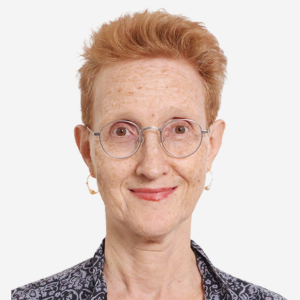
Clinical Supervisor,
The Red Pencil Singapore;
Owner and Director at
West East Pte. Ltd.
Daphna Arbell Kehila has over 20 years’ experience as Expressive Arts Therapist. Living and working in Asia Pacific region for more than three decades, Daphna has a deep understanding of multicultural experiences, which she integrates into her work with various populations and organisations globally. Her work with The Red Pencil Singapore—a charity-based NGO dedicated to bringing creative arts therapy to individuals, groups, and families in Singapore—focuses on developing therapy programmes for the local community and providing clinical supervision to art therapists.
Using Practice Research to Inform The Hidden Youth Intervention Programme
Hidden youth (“Hikikomori”) are youth who withdraw from society for at least six months, with mental illness not the primary cause of isolation. To reach this isolated population and address gaps in services, a community mental health service and a youth social work team collaborated to develop the first specialised intervention for hidden youth in Singapore, the Hidden Youth Intervention Programme (HYIP). The HYIP adopts a biopsychosocial approach to address the complex needs of hidden youths and their families.
This presentation focuses on how the HYIP team uses practice research and evaluation to inform the development and implementation of the intervention model. Due to the challenges collecting data from this difficult-to-reach population, we used innovative methodologies such as documentary photography to capture the lived experiences of hidden youth. Foreseeing difficulties engaging hidden youth, we modified standard research and evaluation approaches to include capturing information from other informants such as caregivers and practitioners.
We will also share the collaborative process between practitioners and in-house researchers to conduct practice research and evaluation with the goal of informing and improving HYIP.
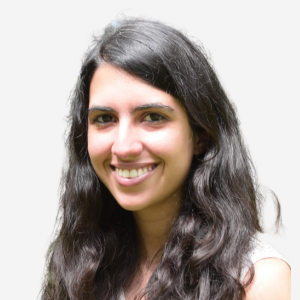
Senior Psychologist, REACH West,
National University Health System

Principal Research Executive,
Fei Yue Community Services

Assistant Senior Social Worker,
Fei Yue Community Services
Sonia is a clinical psychologist currently working with the Response, Early Intervention and Assessment in Community Mental Health (REACH) team at the National University Hospital. She completed her Masters of Clinical Psychology at the University of Melbourne. Sonia has experience working with children and adolescents with a range of mental health issues, including depressive disorders, anxiety disorders and autism spectrum disorder amongst others, and has been working with the hidden youth population for the past 4 years.
Denise is a Principal Research Executive at Fei Yue Community Services. She has 14 years of experience in the social service sector and has published research on topics such as complex trauma and child abuse. She has also supported the evaluation of over 40 programmes and services such as therapeutic groupwork programmes, the Hidden Youth Outreach Service, and community development initiatives. Denise holds a Masters in Social Science (Psychology) from the National University of Singapore, and has been teaching and conducting training at institutions such as the Social Service Institute and the Singapore University of Social Sciences since 2013.
Zoe is an assistant senior social worker at Fei Yue Community Services. She is currently leading the Integrated Service Provider (ISP) team and is also actively involved in macro social work relating to hidden youth in Singapore. Previously, Zoe was involved in portfolios in the Ministry of Social and Family Development (MSF) relating to youth-at and in-risk. She was a probation officer and was subsequently involved in indirect social work practice such as operational policies relating to child welfare such as the Family Guidance Order. Zoe is presently pursuing her master’s in social work under the Ee Peng Liang Scholarship.
Moderator: Dr. Hana Alhadad
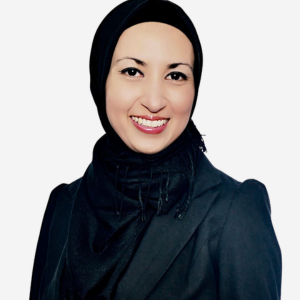
Adjunct Faculty,
National University of Singapore and
Singapore Management University
Dr Hana Alhadad is an adjunct faculty at the National University of Singapore and Singapore Management University, and a Senior Consultant at AWARE. Hana has extensive experience in community development and psychology, and is currently focusing on supporting neurodivergent children and families, single mothers and victim-survivors of family violence, and wellbeing of children and youth. Her current research interests covers equity-centred, trauma-informed education and practice, child and adolescent mental health, parent-child relationships and development.

